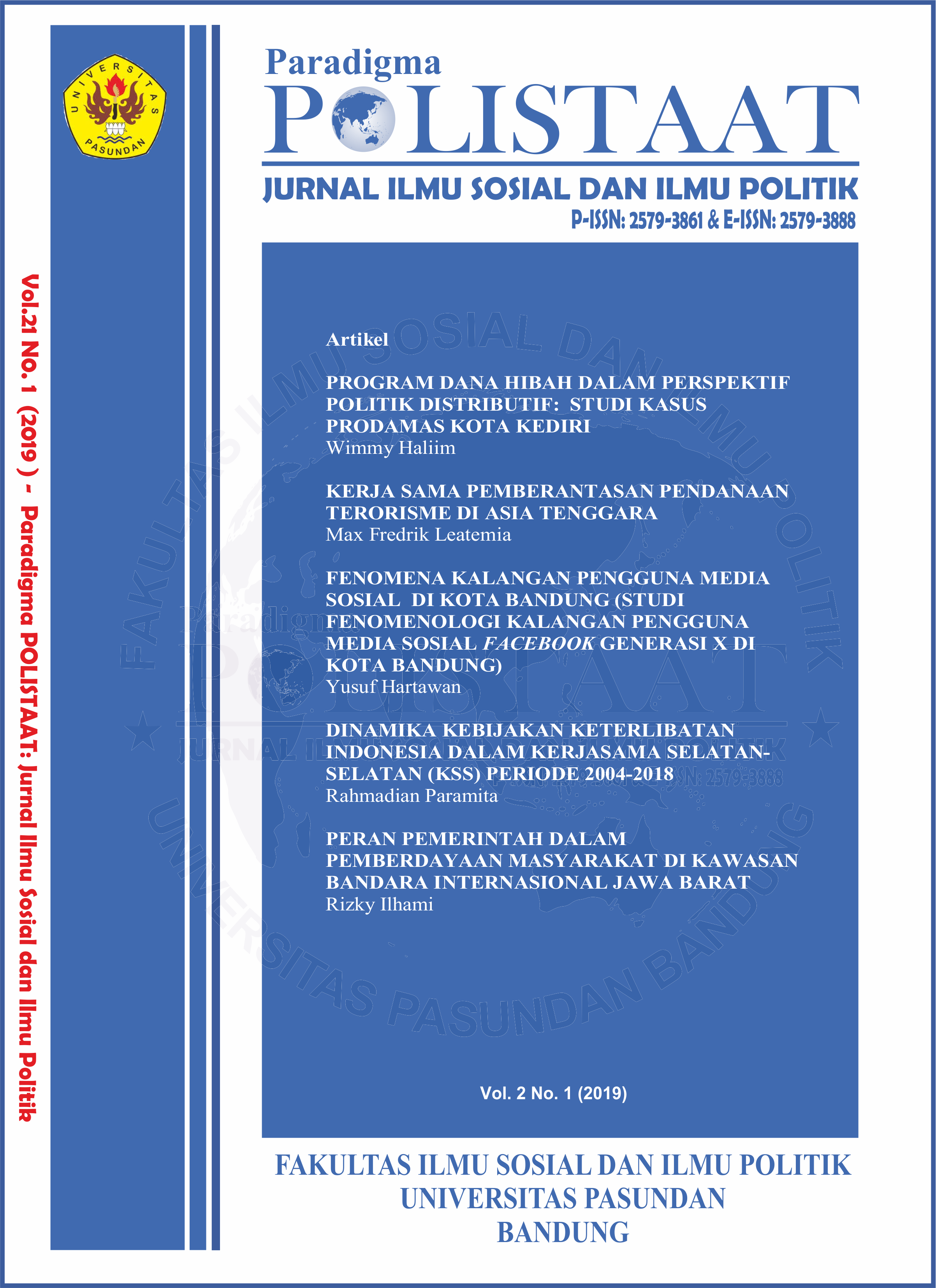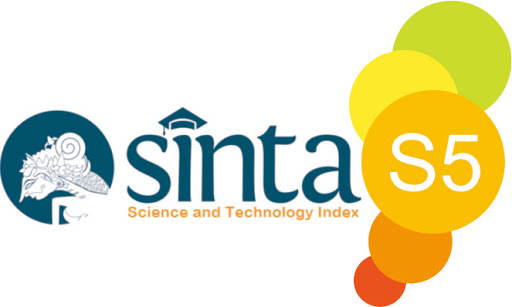KERJA SAMA PEMBERANTASAN PENDANAAN TERORISME DI ASIA TENGGARA
DOI:
https://doi.org/10.23969/paradigmapolistaat.v2i1.1597Keywords:
Southeast Asia, Regional Cooperation, Terrorism Financing, Regional Security Complex (RSC)Abstract
This paper analyzes regional cooperation on Counter Terrorism Financing (CTF) among Southeast Asian countries. Various studies have discussed the factors that construct the response of Southeast Asian countries in fighting terrorism, along with factors that undermines the counter terrorism efforts in the region. Nevertheless, these studies have not specifically adrress the risk of terrorism financing that remains high in the Southeast Asia, particularly in the frame of regional cooperation. By using the Regional Security Complex theory, this paper will explain the polarity and social structure characterizing CTF cooperation in the Southeast Asia, as well as another influential external actor. The focus of this research is on the funding aspects of dominant transnational terrorist groups after September 2001 such as Al-Qaeda and Islamic State (IS). Therefore, the discussion in this research will be focused on five countries that faced the threat of those group, i.e. Indonesia, Philippines, Malaysia, Singapore and Thailand. The findings in this article show that the characteristic of CTF cooperation in the region is largely affected by external power, while the social structure between the internal units of the region is not dominant. Thus, the efforts of the countries become ineffective in overcoming the problem of terrorism financing in the region.
Keywords: Southeast Asia, Regional Cooperation, Terrorism Financing, Regional Security Complex (RSC)
Downloads
Downloads
Published
Issue
Section
License

Paradikma Polistaat: Jurnal Ilmu Sosial dan Ilmu politik is licensed under a Creative Commons Attribution-ShareAlike 4.0 International License
In order to be accepted and published by Paradigma POLISTAAT: Jurnal Ilmu Sosial dan Ilmu politik, author(s) submitting the article manuscript should complete all the review stages. By submitting the manuscript the author(s) agreed to these following terms:
1. The copyright of received articles shall be assigned to Paradigma POLISTAAT: Jurnal Ilmu Sosial dan Ilmu politikas the publisher of the journal. The intended copyright includes the right to publish articles in various forms (including reprints). Paradigma POLISTAAT: Jurnal Ilmu Sosial dan Ilmu politikmaintain the publishing rights to the published articles.
2. Authors are permitted to disseminate published article by sharing the link/DOI of the article at Paradigma POLISTAAT: Jurnal Ilmu Sosial dan Ilmu politik. authors are allowed to use their articles for any legal purposes deemed necessary without written permission fromParadigma POLISTAAT: Jurnal Ilmu Sosial dan Ilmu politik with an acknowledgement of initial publication to this journal.
3. Users/public use of this website will be licensed to CC BY-SA (Attribution & ShareAlike).















